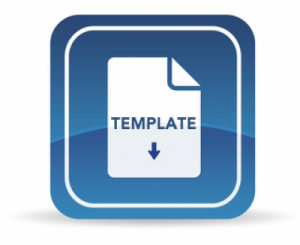HUBUNGAN DURASI TIDUR DENGAN FUNGSI KOGNITIF GERIATRI
DOI:
https://doi.org/10.22487/htj.v5i3.133Abstract
Penurunan fungsi kognitif berkaitan dengan usia tua merupakan fenomena yang tidak terhindarkan. Penurunan fungsi ini salah satunya disebabkan perubahan struktur otak yang mengalami atrofi. Pola tidur juga diketahui mengalami perubahan seiring dengan proses penuaan. Penelitian ini bertujuan untuk menganalisis hubungan durasi tidur dengan fungsi kognitif geriatri berdasarkan skor Mini-Mental State Examination (MMSE) versi Indonesia dan The Montreal Cognitive Assessment versi Indonesia (MoCA-Ina). durasi tidur dengan fungsi kognitif geriatri berdasarkan skor Mini-Mental State Examination (MMSE) versi Indonesia dan The Montreal Cognitive Assessment versi Indonesia (MoCA-Ina). Durasi tidur diukur menggunakan instrumen Sleep Diary Test. Desain penelitian ini adalah analitik observasional dengan jumlah sampel 55 orang. Hasil penelitian meninjukkan hubungan yang secara signifikan bermakna antara durasi tidur dengan skor MMSE (p=0.003) vs skor MoCA-Ina (p=0.002) dengan menggunakan uji oneway ANOVA.
References
Simen AA et al. Cognitive dysfunction with aging and the role of inflammation. Ther Adv Dis. 2011;2(3):175-195.
Kim H et al. Associated factors for cognitive impairment in the urral highly elderly. Brain and Behaviour Journal. 2019;9(5):1-6
Konar A, Singh P, Thakur MK.Age-associated Cognitive Decline : Insights into Molecular Switches and Recovery Avenues. Aging Dis J. 2016;7(2):121-129
Tobore TO. On theetiopathogenesis and pathophysiology of Alzheimer’s disease : a comprehensive Theoretical review. Journal of Alzheimer’s Disease. 2019;68(2):417-437.
World Helath Organization dan King’s Collage. Risk reduction of cognitive decline and dementia : WHO guideline. 2017.
Wang YX et al. Lifespan intellectual factors, genetic susceptibility. and cognitive phenotypes in aging : implications for interventions. Front Aging Neurosci J. 2019;11(129):1-11.
Xie Y et al. New insight into the cicardian rhytm and its related disease. Front Physiol J. 2019;10(682):1-19.
Tigano V et al. Neuroimaging and neurolaw : drawing in the future of aging.Front Endocrinol J. 2019;10(217):1-15.
Bubbico G et al. Subjective cognitive decline and nighttime sleep alterations, a longitudinal analysis. Frontiers in Aging Neuroscience. 2019;11(142):1-8
Ibanez V, Silva J, Cauli O. A survey on sleep assessment methods. Peer J. 2018;1-26.
Creavin ST et al. Mini-mental stase examination (MMSE) for the detection of dementia in cinically unevaluated people aged 65 and over in community and primary care populations (Revie). Cochrane Collaboration. John Wiley & Son, Ltd. 2016.
Doerflinger DMC et al. Mental status assessment in older adults : montreal cognitive assessment : MoCA. General assessment series J.2019;3(2):1-2
Tsai JC et al. Comparing the sensitivity, specificity, and predictive values of the Montreal Cognitive Assessment and Mini-Mental State Examination when screening people for mild cognitive impairment and dementia in Chinese population. Archieve of Psychiatric Nursing J.2016;30:486-491.
Jike M et al. Long sleep duration and health outcomes : a systematic review, meta-analysis and meta-regeression. Sleep Medicine J. 2018;25-36.
Henry A et al. The relationship between sleep duration, cognition and dementia : a Mendelian randomization study.Int J Epidemiol. 2019;48(3):849-860.
O’Connor M. Aging and sleep : making changes for brain health. Harvard Health Publisihing Medical School. 2019.
Mantua J dan Simonelli G. Sleeo duration and cognition : is there an ideal amount ?. Sleep J. 2019;1-3
Wild. CJ et al. Dissociable effects of self report daily sleep duration on high-level cognitive abilities. Sleep J. 2018;41(12):1-3
Spira AP et al. Impact of sleep on the risk of cognitive decline and dementia. Curr Opin Psychiatry.2015;27(6):478-483.
Wu CR et al. Sleep mediates the relationship between depression and cognitive impairment in older men. Am J Mens Health J. 2019;13(1):1-10.






